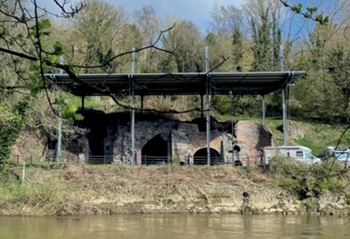The heat pump skills gap of the UK in 2023
The UK’s heat pump skills gap has been laid bare by a survey which revealed only 18% of engineers are currently installing heat pumps and 44% don’t know where to go to get trained.
Contents |
[edit] Introduction
A survey commissioned by Energy Efficiency at City Plumbing, and conducted by Censuswide, polled installers about their current knowledge of renewable technologies in the heating market and whether they planned to become certified to instal them.
The results show there is significant work to provide installers with all the information they require about the topic, inspire them to seek training, and address their concerns.
The government has a target for 600,000 heat pumps to be installed per year by 2028 in a bid to achieve national Net Zero targets. But last year the figure was between 60,000 and 70,000 - and installers need more information on how to get involved.
[edit] Survey results
The survey revealed:
- 44% of installers don’t know where to go to get trained and only 27% say it’s easy to find a course near where they live.
- Just 18% of installers currently instal heat pumps and only 6% are MCS certified.
- 32% of installers are unaware of the government’s Boiler Upgrade Scheme in England and Wales (which offers discounts for homeowners switching to a heat pump if they use a certified installer).
- Only 45% of installers say they are confident they know enough about heat pumps to explain their benefits to customers.
[edit] Comment
Adam Foy, Managing Director of Energy Efficiency at City Plumbing, said: “This is a significant issue for everyone if we want to achieve net zero targets and it is one that we should be talking about urgently. As an industry we need to make training more accessible. We should be there for installers who are interested in upskilling and encouraging others that doing so will be good for their business. The underlying interest is there. Our survey also revealed that 49% of installers would consider becoming MCS certified if there was a course available locally. Moreover, when we asked installers if becoming certified would be good for their careers, 82% agreed. It’s not possible to achieve government targets without trained installers, so now is the time to act.”
[edit] Energy Efficiency Centre for training
Energy Efficiency at City Plumbing has started the ball rolling by launching its first Energy Efficiency Centre, in Farnborough, Hampshire, where installers can go for training. This follows the announcement of a new partnership with GTEC Training. But the entire industry will need to work together to achieve national goals.
Heating in UK homes produces as much as 17% of the country’s greenhouse emissions, according to the Climate Change Committee.
Adam added: “We need installers to be ambassadors for renewable technologies, especially in the domestic market where many homeowners are yet to be convinced, so education and effective communication is vital. Ultimately, Net Zero targets are going to be difficult to achieve without the right number of trained installers.”#
Current numbers of MCS certified installers are around the 1,500 mark - but the Heat Pump Association estimates 30,000 will be needed in the long term.
[edit] Changes in customer expectations
- 53% of installers say customers are increasingly interested in finding out about heat pumps
- 76% agree customers are more interested than a year ago.
- 42% expect energy efficient heating will boom by 2025
[edit] About
- Survey fieldwork: Conducted by Censuswide
- Survey base: 350 installers
- Survey period: December 2022-Januray 2023
- City Plumbing and the Energy Efficiency team are part of Highbourne Group Limited, one of the largest merchants operating in the UK’s plumbing and heating sector.
- For more information on Energy Efficiency go to: https://eecityplumbing.co.uk/
- For more information on City Plumbing go to: https://www.cityplumbing.co.uk/
- For more information on Highbourne Group go to: https://www.highbournegroup.co.uk/
[edit] Related articles on Designing Buildings
- Absorption heat pump.
- A decade for heat pumps.
- Air source heat pumps.
- BSRIA global heat pump market 2019.
- Domestic heat pumps and the electricity supply system.
- Exhaust air heat pump.
- Ground source heat pumps.
- Heat pump
- Heat pump COP & EER and central plant SCOP in ambient loops.
- Hybrid heat pump electric panel heating.
- Residential heat pump installations: the role of vocational education and training.
- Room-based heat pumps.
- Solar-assisted heat pump.
- Types of heat pump.
- What are the different types of heat pumps and where would you use them?
Featured articles and news
Art of Building CIOB photographic competition public vote
The last week to vote for a winner until 10 January 2025.
The future of the Grenfell Tower site
Principles, promises, recommendations and a decision expected in February 2025.
20 years of the Chartered Environmentalist
If not now, when?
Journeys in Industrious England
Thomas Baskerville’s expeditions in the 1600s.
Top 25 Building Safety Wiki articles of 2024
Take a look what most people have been reading about.
Life and death at Highgate Cemetery
Balancing burials and tourism.
The 25 most read articles on DB for 2024
Design portion to procurement route and all between.
The act of preservation may sometimes be futile.
Twas the site before Christmas...
A rhyme for the industry and a thankyou to our supporters.
Plumbing and heating systems in schools
New apprentice pay rates coming into effect in the new year
Addressing the impact of recent national minimum wage changes.
EBSSA support for the new industry competence structure
The Engineering and Building Services Skills Authority, in working group 2.
Notes from BSRIA Sustainable Futures briefing
From carbon down to the all important customer: Redefining Retrofit for Net Zero Living.
Principal Designer: A New Opportunity for Architects
ACA launches a Principal Designer Register for architects.






















Comments
[edit] To make a comment about this article, click 'Add a comment' above. Separate your comments from any existing comments by inserting a horizontal line.